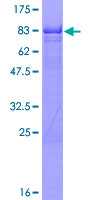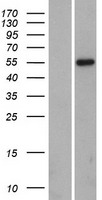order histories, retained contact details for faster checkout, review submissions, and special promotions.
Forgot password?
order histories, retained contact details for faster checkout, review submissions, and special promotions.
Location
Corporate Headquarters
Vector Laboratories, Inc.
6737 Mowry Ave
Newark, CA 94560
United States
Telephone Numbers
Customer Service: (800) 227-6666 / (650) 697-3600
Contact Us
Additional Contact Details
order histories, retained contact details for faster checkout, review submissions, and special promotions.
Forgot password?
order histories, retained contact details for faster checkout, review submissions, and special promotions.
IKZF1 / IKAROS
IKAROS family zinc finger 1 (Ikaros)
IKZF1 / IKAROS is a transcription factor that belongs to the family of zinc-finger DNA-binding proteins associated with chromatin remodeling. The expression of this protein is restricted to the fetal and adult hemo-lymphopoietic system, and it functions as a regulator of lymphocyte differentiation. Several alternatively spliced transcript variants encoding different isoforms have been described for this gene. Most isoforms share a common C-terminal domain, which contains two zinc finger motifs that are required for hetero- or homo-dimerization, and for interactions with other proteins. The isoforms, however, differ in the number of N-terminal zinc finger motifs that bind DNA and in nuclear localization signal presence, resulting in members with and without DNA-binding properties. Only a few isoforms contain the requisite three or more N-terminal zinc motifs that confer high affinity binding to a specific core DNA sequence element in the promoters of target genes. The non-DNA-binding isoforms are largely found in the cytoplasm, and are thought to function as dominant-negative factors. Overexpression of some dominant-negative isoforms have been associated with B-cell malignancies, such as acute lymphoblastic leukemia (ALL).
| Gene Name: | IKAROS family zinc finger 1 (Ikaros) |
| Synonyms: | IKZF1, CLL-associated antigen KW-6, HIk-1, Hs.54452, IK1, IKAROS, Ikaros/lyf-1 homolog, LyF-1, PRO0758, DNA-binding protein Ikaros, Ikaros (zinc finger protein), LYF1, ZNFN1A1 |
| Target Sequences: | NM_006060 NP_006051.1 Q13422 |





If you do not find the reagent or information you require, please contact Customer.Support@LSBio.com to inquire about additional products in development.









